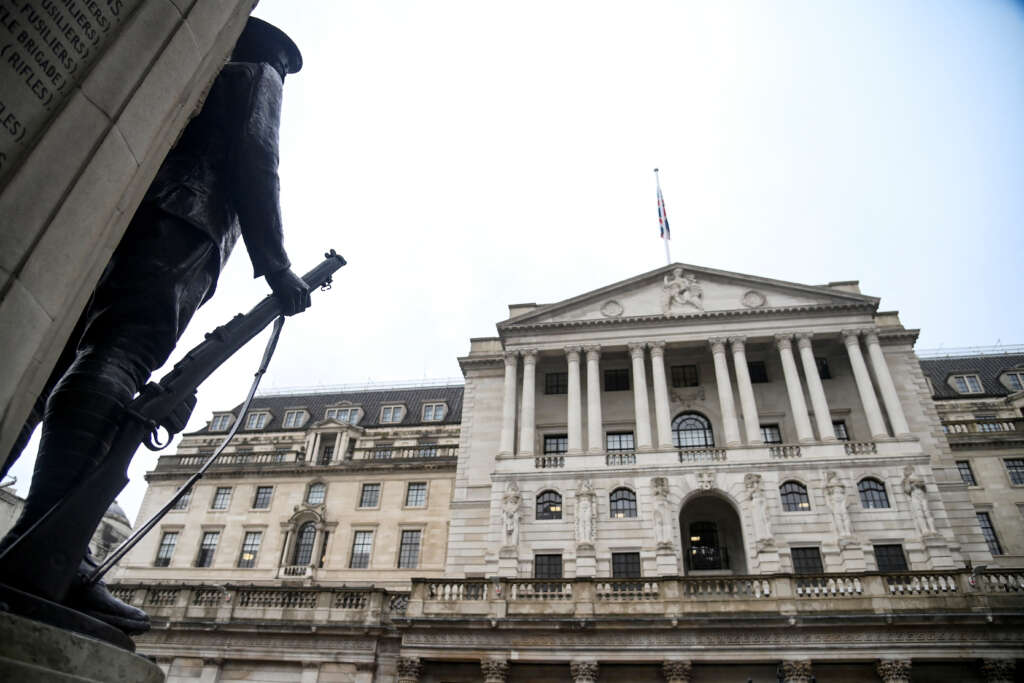
LONDON (Reuters) -The Bank of England has launched its first system-wide liquidity ‘stress test’ to establish how big banks, insurers, clearing houses and investment funds respond collectively during extreme stresses in markets, it said on Monday.
The BoE had said in December that investment funds and other non-bank financial institutions would face their first ‘stress test’ to apply lessons from the near-meltdown in Britain’s pension fund sector in September.
“The launch of this exercise will provide valuable insight into the system-wide dynamics for banks and non-banks following a severe but plausible stress to financial markets,” BoE Deputy Governor Jon Cunliffe said in a statement.
Liability-driven investment (LDI) funds, used by pension funds to ensure their long-term payouts, struggled to meet collateral calls after turmoil caused by the fiscal plans of Liz Truss’s short-lived government in September. The BoE had to step in to buy government bonds to stabilise markets.
Money market funds also came under “dash-for-cash” pressure during market stresses following economy lockdowns to fight COVID-19 in 2020.
The BoE has long run separate stress tests of individual banks and insurers to help determine correct capital buffers, but this is the first financial-system wide test, with the bank saying results are expected in the second half of next year to help manage risks better.
The test, the first of its kind globally and which includes hedge funds and pension funds, will focus on UK government bond and repo markets, sterling corporate bond markets and associated derivatives markets, the BoE said.
“The exercise is not a test of the resilience of the individual firms participating. Published materials will not provide information on any individual firms.”
The test will ask firms to show how stresses such as heavy redemptions from investors or rocketing margin calls from clearing houses affect liquidity, amplify shocks and threaten financial stability.
The test is the latest sign of how central banks are seeking a grip on the huge non-bank sector that now plays a key role in funding the economy, often involving leverage and bank-like activities such as lending.
(Reporting by Huw JonesEditing by Emma Rumney, Kirsten Donovan)


